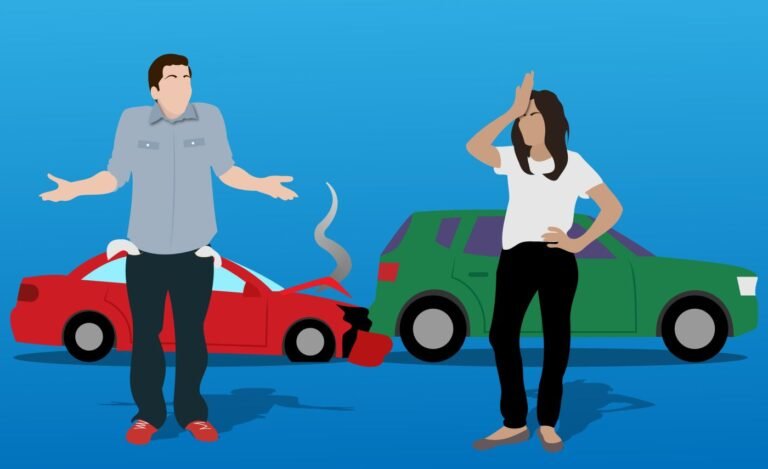After a crash, figuring out who’s at fault isn’t always straightforward. In Colorado, the law allows for shared liability, which can affect the amount of money you’re able to recover. That’s why talking to a car accident lawyer in Denver can be so important, since they can help you make sense of it all. Even if you think you were partly at fault, you may still have a valid claim. Let’s take a closer look at how this works.
What Is Comparative Negligence
Comparative negligence is a legal concept that decides how much each person involved in an incident is to blame. In Colorado, this means that if you’re partly at fault for your injuries, your compensation can be reduced based on your share of the blame. It’s a way to split responsibility fairly, instead of placing all the blame on one side.
How Fault Is Determined in Colorado
In Colorado, fault is determined by looking at the details such as things like police reports, witness statements, and any available evidence from the scene. Insurance companies often decide fault first, but if a dispute arises, the courts may become involved. It’s not always cut and dry, which is why having solid documentation can make a big difference.
Why Percentages of Fault Matter
Percentages of fault matter because they directly affect how much money you can receive after an injury. For example, if you’re found to be 20 percent at fault, your compensation will be reduced by that amount. But if you’re 50 percent or more at fault in Colorado, you might not be able to recover anything at all.
How This Law Affects Injury Settlements
This law plays a big role in how much you’ll actually get in a settlement. Insurance companies use your percentage of fault to lower the payout they offer. That’s why it’s important to have strong evidence on your side, so you’re not unfairly blamed and shortchanged.
Do You Always Need a Lawyer for These Cases
Here’s a breakdown of when it makes sense to hire a lawyer and when you might be okay handling things on your own. It really depends on the complexity of your situation and the amount at stake.
When a Lawyer Can Really Help
If your injuries are serious or long-term, a lawyer can help make sure you’re not settling for less than you deserve. Medical bills, lost wages, and future treatment can add up quickly, and legal help ensures everything is factored into your claim. A lawyer can also push back if the insurance company tries to blame you unfairly. They know how to negotiate and present the right evidence to reduce your share of the fault.
When You Might Not Need One
If the accident was minor and you didn’t suffer any real injuries, you may be able to handle the claim on your own. In small claims cases, hiring a lawyer might not be worth the cost. Some insurance claims are straightforward, especially if there’s clear evidence and the other party has admitted fault. But it’s still smart to do a little research or get a free consultation just to be sure.
Common Mistakes People Make with Shared Fault
When you’re dealing with shared fault in Colorado, a few simple missteps can hurt your injury claim more than you think. Here are some of the most common mistakes people make—and how to avoid them.
Admitting Fault Too Quickly
After an accident, many people instinctively say “I’m sorry” or admit fault without knowing all the details. Even a casual comment can be used against you later by insurance adjusters. It’s best to stick to the facts and avoid making any statements about blame until all the evidence is reviewed.
Not Gathering Enough Evidence
Without solid proof (like photos, witness names, or a police report) it’s harder to challenge a claim that you were mostly at fault. The more information you have, the better your chances of reducing your percentage of blame. Always document everything at the scene if you’re able to, and follow up with any relevant medical records.
Assuming You Have No Case if You Share Blame
Many people think that if they were partly responsible, they can’t recover any compensation—but that’s not true in Colorado. As long as you’re less than 50 percent at fault, you may still have a valid claim. Don’t count yourself out without getting a legal opinion first; you might be surprised by what you’re entitled to.
Key Takeaways for Colorado Residents
If you’re injured in Colorado, remember that you can still get compensation even if you were partly at fault, just not if you’re 50 percent or more to blame. Your final payout depends on how fault is divided, so every detail counts. Knowing your rights and acting quickly can make a big difference in the outcome.
Closing Thoughts
Understanding how fault works in Colorado can be confusing, but it’s crucial to ensuring you don’t leave money on the table after an injury. If you’re unsure where you stand or how much your case might be worth, a car accident lawyer in Denver can walk you through it. You don’t have to figure it all out alone; help is just a conversation away.
